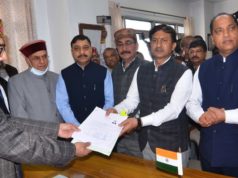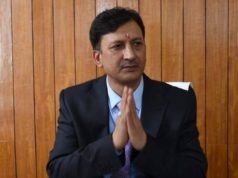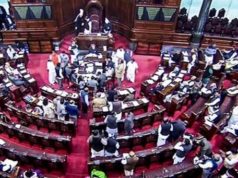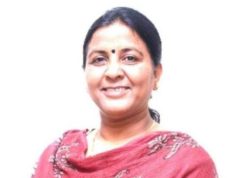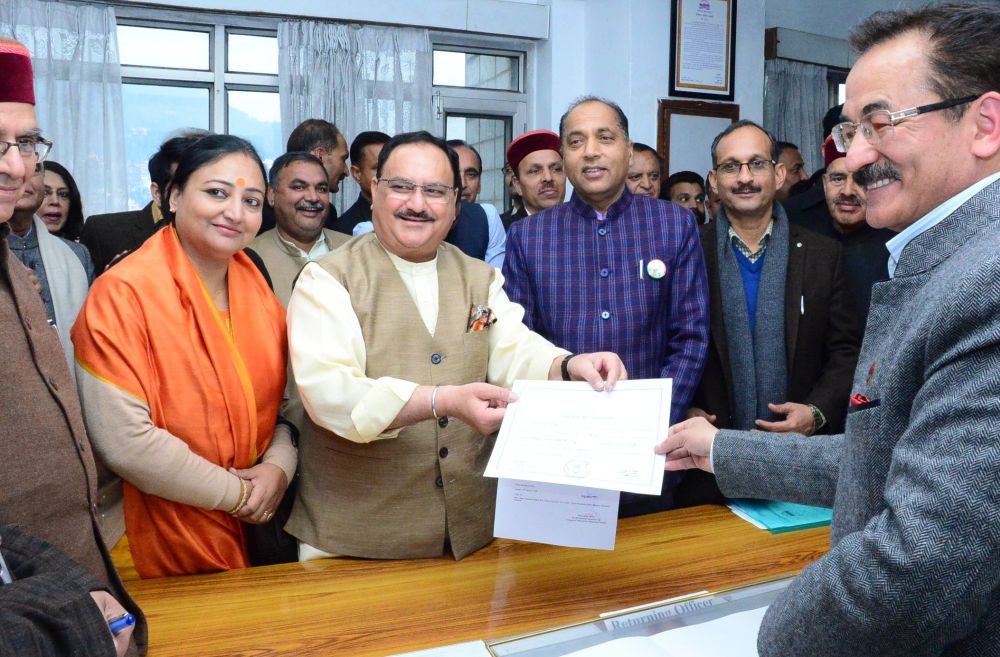Rajya Sabha amended 120 Bills and rejected five Bills passed by Lok Sabha
Total of 2,282 members so far; 208 women members and 137 nominated
Women members double from 15 in 1952 to 31 in 2014
New Delhi: The first-ever effort by the Rajya Sabha secretariat to quantify and analyse the legislative work done by the Upper House since it came into being in 1952 has revealed that the House has passed 3,817 Bills till the end of the last and the 249th session. Of these, 60 Bills had lapsed due to the dissolution of Lok Sabha at various points of time while 63 Bills were deemed to have been passed by the Upper House while two Bills cleared by it are still to be taken up in Lok Sabha. In effect, a total of 3,818 Acts of Parliament have been made since the first general elections in 1952.
A wide range of such statistical summary and other details on various aspects of the functioning of the House are contained in a publication “Rajya Sabha: The Journey since 1952” released by Chairman M.Venkaiah Naidu at a meeting of the leaders of various parties and groups here today. Naidu convened the meeting to seek cooperation of the parties for the smooth functioning of the landmark 250th session of Rajya Sabha beginning tomorrow.
The 118 page publication with 29 chapters is a ready reckoner with interesting statistics, details of the first moves and some unique events besides details of major Bills passed by the Rajya Sabha in respect of social change, economic transformation, industrial development, health, education, agriculture, environment, national security and the objectives of 103 Constitution amendments so far made etc.
A glimpse of the content relating to the journey of Rajya Sabha during the last 67 years since it’s first sitting on 13.5.1952 is furnished below:
Rajya Sabha Members:
Total members of Rajya Sabha so far including those with more than one term is 2,282 including 208 women and 137 nominated members. Dr. Mahendra Prasad is serving the highest number of 7th term followed by Dr.Manmohan Singh serving 6th term. Dr. Najma Heptulla and late Ram Jethmalani are the other two with six terms each.
Rajya Sabha Chairman Naidu has been elected to the Upper House for the fourth term.
The representation of women in Rajya Sabha increased from 15 (6.94%) in 1952 increased to 31(12.76%) in 2014 and is now 26 (10.83%) in 2019.
Some unique events relating to Rajya Sabha:
1.Casting vote by the Chair: The first and the only time when a Presiding Officer of Rajya Sabha cast his vote was when the Panel Chairman M.A. Baby did so on 5.8. 1991 when the voting was tied 39-39 on the Statutory Resolution moved by the opposition seeking disapproval of the Code of Criminal Procedure (Amendment) Ordinance resulting in the victory of the opposition in the House.
2. President Rule approved only by Rajya Sabha: It happened only twice in respect of extension of President Rule in Tamilnadu and Nagaland in 1977 and in case of Haryana in 1991 when Lok Sabha was dissolved.
3.Removal of a Judge: The only time Rajya Sabha adopted a motion for removal of a Judge was in respect of Justice Soumitra Sen of Calcutta High Court on 18.8.2011 but he resigned before the motion was taken up in Lok Sabha.
4.Expulsion of members: Rajya Sabha adopted a motion on 15.11.1976 for expulsion of Dr. Subramanian Swamy whose conduct and activities were found by a Committee to be derogatory to the dignity of the House and it’s members. Dr. Chatrapal Singh was expelled on 23.11.2005 after Ethics Committee found him guilty of accepting money for asking questions. Dr. Swami Sakhsi Ji Maharaj was expelled on 21.3.2006 for irregularities in recommending projects under MPLAD scheme.
5.Suspension of members for the remainder of the session: 7 members viz., Kamal Akhtar, Veer Pal Singh Yadav, Dr.Ejaz Ali, Shri Sabir Ali, Subhash Prasad Yadav, Amil Alam Khan and Nand Kishore Yadav were on 9.3.2010 suspended for the remainder of the 219th session for willfully obstructing the Business of the House during discussion on women’s reservation bill.
6. Reprimand: Former Member of Rajya Sabha K.K.Tiwari was summoned to the Bar of the House and was reprimanded on 1.6.1990 for a statement published in newspapers the same day that brought the office of Chairman and the House to indignity and contempt.
7. Bill passed by Rajya Sabha but negative by Lok Sabha: The Constitution (Sixty-fourth Amendment) Bill, 1990 seeking to amend Article 356 relating to extension of President’s Rule in Punjab.
8. Bills passed by Lok Sabha but negatived by Rajya Sabha (5): The Constitution (Twenty-fourth Amendment) Bill, 1970 seeking to terminate privy purses and privileges of former Indian States, The Banking Service Commission (Repeal) Bill, 1977, The Constitution (Sixty-fourth Amendment) Bill, 1989 seeking to insert a new Part IX in the constitution relating to Panchayats, The Constitution (Sixty-fifth Amendment) Bill, 1989 relating to Nagar Panchayats and Municipalities and The Prevention of Terrorism Bill, 2002.
9.Bill reconsidered by Rajya Sabha: Rajya Sabha passed the Parliament (Prevention of Disqualification) Amendment Bill on 17.5.2006 as earlier passed by Lok Sabha but the President referred the same for reconsideration on 30.5.2006. Rajya Sabha reconsidered the same and passed as it was on 27.7.2006 and Lok Sabha passed it four later and was later assented to by the President on 18.8.2006.
Bills passed at the joint sittings of both the Houses of Parliament (3):
-The Dowry Prohibition Bill, 1959 was first introduced in and passed by Lok Sabha. Rajya Sabha later insisted on some amendments to which Lok Sabha did not agree. The Bill was passed on 9.5.1961 at a joint sitting.
-The Banking Service Commission (Repeal) Bill, 1978 first introduced in and passed by Lok Sabha was later rejected by Rajya Sabha. It was passed on 16.5.2018 at a joint sitting.
-The Prevention of Terrorism Bill, 2002 passed by Lok Sabha was negatived by Rajya Sabha and was later passed at a joint sitting on 26.3.2002.
Some firsts relating to Rajya Sabha
First sitting of the House was held on 13.5.1952
First Bill passed: The Indian Tariff (Second Amendment) Bill, 1952
First Bill concerning social change: The Special Marriages Bill, 1952
First Constitution Amendment Bill passed by Rajya Sabha: The Constitution (Second Amendment) Bill, 1953 for readjustment of representation in Lok Sabha by increasing the size of population per constituency.
First Bill on Law and Order: The Preventive Detention (Second Amendment) Bill, 1952
First media related Bill: The Press (Objectionable Matters) Amendment Bill, 1953
First on reorganization of States: The Andhra State Bill, 1953
First Bill on health education: The All India Institute of Medical Sciences Bill, 1955
First Bill on all-India services: The All India Services (Amendment) Bill, 1958
First security-related Bill: The Armed Forces (Assam and Manipur) Special Powers Bill, 1958
First on pollution: The Prevention of Water Pollution Bill, 1969
First nationalization Bill: The Banking Companies (Acquisition and Transfer of Undertakings) Bill, 1970
First against economic offences: The Economic Offences (Incapability of Limitation) Bill, 1974
First Money Bill deemed to have been passed by Rajya Sabha: The Appropriation (Railways) No.4 Bill, 1978
First Bill referring to terrorism: The Terrorist Affected Areas (Special Courts) Bill, 1984
Bills passed by Lok Sabha and amended by Rajya Sabha: The 120 such Bills include; The Companies Bill, 1953, The UGC Bill, 1954, The Constitution (Forty-fourth Amendment) Bill, 1978, The Chit Funds Bill, 1982, The Prevention of Corruption Bill, 1988, The Prevention of Money Laundering Bill, 2002, The Special Economic Zones Bill, 2005, The Right to Fair Compensation and Transparency in Land Acquisition Bill, 2013, The Lok Pal and Lok Ayuktas Bill, 2016, The National Medical Council Bill, 2019 and The Motor Vehicles (Amendment) Bill, 2019.
The most impactful Bills passed by Rajya Sabha sector-wise since 1952 include:
-The Hindu Marriage and Divorce Bill, 1952, The Hindu Succession Bill, 1954, The Sexual Harassment of Women at Workplace (Prevention, Prohibition and Redressal) Bill, 2012, The Muslim Women (Protection of Rights on Marriage) Bill, 2019 and the Constitution (One Hundred and Third) Amendment Act, 2019 providing for reservation for the economically weaker sections.
The Companies Bill, 1953 (and of 1956 and 2013), Banks Nationalisation Bill, 1970, Coal Mines Nationalisation Bill, 1973, the Prevention of Money Laundering Bill, 1999, the Fiscal Responsibility and Budget Management Bill, 2003, the Black Money (Undisclosed Foreign Income and Assets) and Imposition of Tax Bill, 2015, the Constitution Amendment Bill, 2016 introducing GST, The Fugitive Economic Offenders Bill, 2018 and the Insolvency and Bankruptcy Code, 2016.
The States Reorganisation Bill, 1956, The North-Eastern Council Bill, 1969, The National Capital Region Planning Board Bill, 1985, The Constitution 73rd and 74th Amendment Acts, 1992 providing for direct elections to Panchayats and Municipal bodies with one-third reservation for women and The Jammu and Kashmir Reorganisation Bill, 2019.
The National Bank for Agriculture and Rural Development Bill, 1981, The Agricultural and Processed Food Products Export Development Authority Bill, 1985 and The National Dairy Development Board Bill, 1987.
The All India Institute of Medical Sciences Bill, 1955, The Pre-Natal Diagnostic Techniques (Regulation and Prevention of Misuse) Bill, 1991, The Transplantation of Human Organs (Amendment) Bill, 2011 and the National Medical Commission Bill, 2019
The University Grants Commission Bill, 1954 and the Right of Children to Free and Compulsory Education Bill, 2009.
The Wild Life (Protection) Bill, 1972, The Forest (Conservation) Bill, 1980, The Environment (Protection) Bill, 1986, The Compensatory Afforestation Bill, 2016.
The Unlawful Activities (Prevention) Bill, 1967, The Maintenance of Internal Security Bill, 1971, The National Security Bill, 1980, The Terrorists and Disruptive Activities (Prevention) Bill, 1985, The Prevention of Terrorism Bill, 2002, The National Investigation Agency Bill, 2008 and The Unlawful Activities (Prevention) Amendment Bill, 2019.


